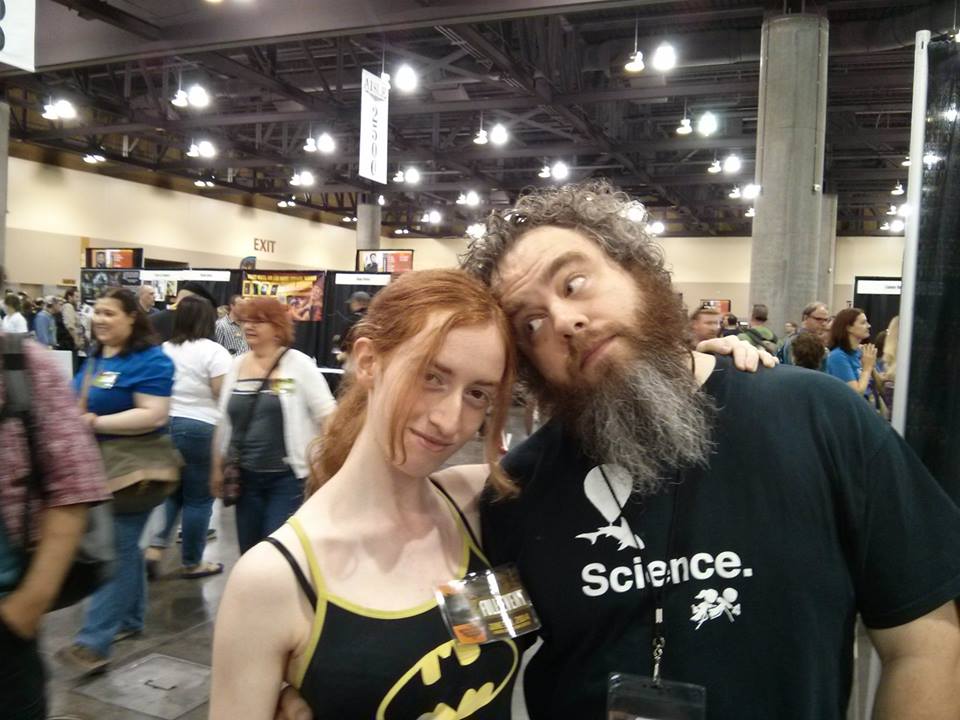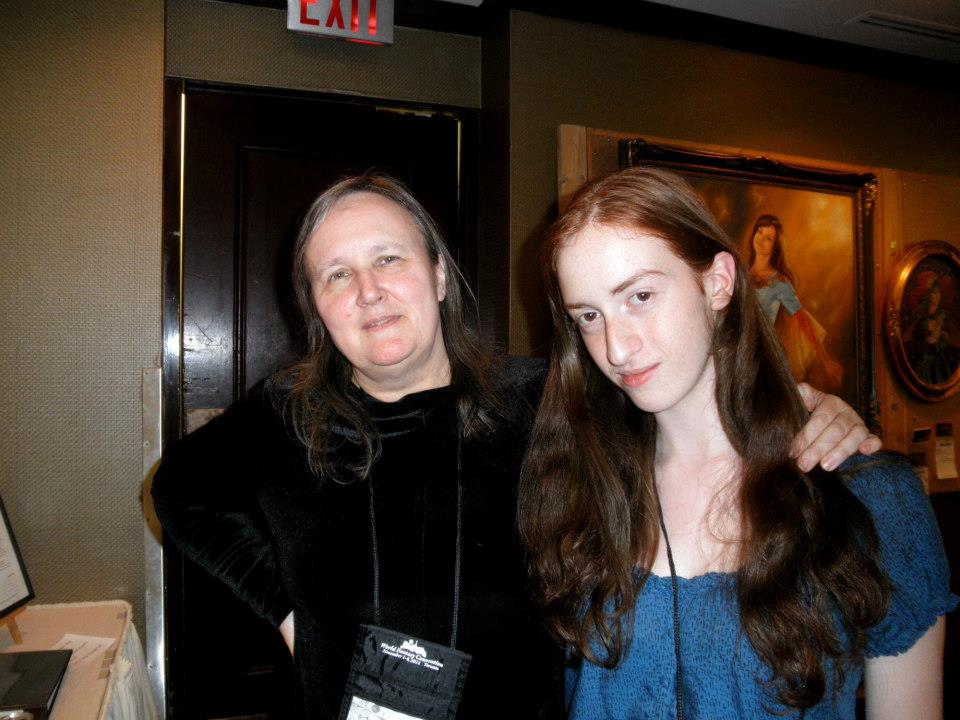The Use of Description
Well… It’s been a while since I last did one of these — a general post about stuff.
Lately, I’ve been asked the question “What makes a book good?” a lot, and I’ve given some small, non-committal answer each time. I figured though, that I would do this properly and give my opinion on the topic (for there is no one answer to this question, but many… varying from person to person). This post will specifically talk about description. I may do more in the future, though I also may not.
The main thing that this post will focus on is the description. Reading over the reviews I’ve written over the past year, one of the points I seem to make reference to is the author’s use of description in the novel. Whether I’m saying there’s too much, too little, the description is excellently done, or in contrast — poorly.
But I’ve come to realize something, I’m a fan of Robert Jordan’s Wheel of Time series, which is pretty much the epitome of “too much description” and I love it! So more and more I’m thinking it isn’t so much the amount of description, as it is the timing and placement of it. If a piece of description is put in such a time that it detracts from the story, then it will seem like the author is using too much description — whereas if the same amount of description had been put elsewhere, it would be quite fine.
An example of description at the wrong place/wrong time:
Mary closed her eyes, drops of sweat beading upon her brow, waiting for the inevitable bang that would mark the end of her 22 years of life. Hearing the safety on the gun ‘click’ her knees — hidden under her sky-blue dress with finely inlaid roses braided across the seams. She had bought it only yesterday, thinking to show it off to Jayne — began to shake, and she sent her last prayer to the Gods above.
The roar of a bullet, the ripping of flesh and cotton, and a final breath of life. Mary had paid good money for that dress, but now as strong arms caught her lifeless body, blood spread across the fine fabric, like a tulip blooming against the morning sky. There she lay, and there she died, in the hands of her best-friend her lover, and her killer. He was notably dressed less finely than she, in his “Joss Whedon Kills” t-shirt (probably for the irony), and jeans. Overall, he made a very ineloquent killer.
Description shouldn’t be a bad thing. While we should hopefully have some idea of what the characters look like (before this point), describing the clothing of Mary and the killer is out of place and detracts from the impact of the scene. Using the same passage as above, but with a few passages cut, it creates a different feel to it.
Mary closed her eyes, drops of sweat beading upon her brow, waiting for the inevitable bang that would mark the end of her 22 years of life. Hearing the safety on the gun ‘click’ her knees began to shake, and she sent her last prayer to the Gods above.
The roar of a bullet, the ripping of flesh and cotton, and the final breath of life. Strong arms caught Mary’s lifeless body, blood spreading across the fine fabric of her dress, like a tulip blooming against the morning sky. There she lay, and there she died, in the hands of her best-friend, her lover, and her killer.
The original paragraphs didn’t necessarily have too much information; it was just not where it should be. Perhaps have Mary’s dress described before the event, or even after. Of course, giving too much information is entirely possible; the calibre, make, specs of the gun could be given, the price Mary got the dress, the way her hair was tied up, any number of things added to that could just be too much.
It’s all well and good to give readers information so that they can visualize the characters, but there shouldn’t be an info-dump either. It’s a matter of balance, finding when and where to use descriptive text and how much. The best descriptions aren’t the ones that are shining in the neon light, but the ones that may not be noticed fully, but become embedded into the reader’s mind.
I’m not an expert, I don’t write (the two example paragraphs are pretty much the extent of the creative writing I’ve done in the past year), and I know there are exceptions to every rule. There will be some people who agree fully with what I’ve said, and people who will disagree with every point. This is just my opinion on the matter from what I’ve noticed in my readings.
The point of this post was to answer the question: What do I think makes a good novel? For me, description plays a huge role, but no individual aspect can account for the greatness of a novel. The world you create — whether it’s modern-day Manhattan or K’ricck village on planet M’thut, you have to work to make it realistic and recognizable to the reader. The characters; they have to be people we want to spend hours of our time with, and be able to empathize with, we have to understand their motives and even if we don’t agree with them, you have to make us want them to succeed. Also, the importance of a good plot can not be emphasized enough — intriguing characters, a phenomenal world, and rich, eloquent description count for nothing if there’s no plot, or the plot has more holes than a strainer.
There really is no one thing that makes a story “good”, it’s an amalgamation of the many components, blended together to make not just a book, but an experience, worth having and spending the time with. Achieve that, and you will have something many will enjoy.
That’s my thoughts on it really, I could go into further detail on just about anything, the worldbuilding, characters, and plot.. This post really just focused on description more than anything, but it’s one of the biggest things for me.
Do you agree? Disagree? Or should I just stop rambling and get back to reading? ;)




7 Comments
Joesph Hinke
I simply want to tell you that I am new to blogging and absolutely loved your web blog. Very likely I’m going to bookmark your blog . You definitely come with great articles. With thanks for sharing with us your web site.
hurtige lån
I¡¦m no longer sure where you are getting your information, however great topic. I must spend some time studying more or understanding more. Thanks for great info I used to be searching for this info for my mission.
RLovatt
I’m sorry Hurtige, it’s not that I’m getting this information from anywhere. This piece was purely an opinion piece. And I’m glad that you found it to be great info, even if you were having mixed feelings about any of my sources. Thanks for reading!
Shane Jardine
Another good read, and I agree with what you were saying about description placement and timing. You don’t just do an info dump, books like the Wheel of Time get it right by the author building a solid foundation of a story, and putting the world building stuff and descriptions in at points where its relevant to the story in some way.
Another thing that I think can make or break a book for alot of people is the learning curve. The Wheel of Time, Mercedes Lackeys Heralds of Valdemar books for example have gentle learning curves. You learn what you need to know as you go along and you aren’t too confused.
But series like Malazan Book of the Fallen (which has the steepest learning curve of any book i’ve ever read), just toss you into the middle of this war and don’t explain anything, don’t explain the magic, etc. It just expects you to figure it out as you go..for me thats what makes a bad book.
Don’t know if that rambling post made any sense to anyone else though.
RLovatt
Thanks Shane!
And yeah, I’ve read a lot of books that don’t do the steady learning curve but throw it at you, Malazan one among many. I find those difficult to get into (I haven’t even managed to read through Gardens of the Moon and I bought it over a year ago). I’m sure Erikson’s writing is good, I’ve heard that the other books in the series are excellent, but for me — if the first book doesn’t make me want to read on, then that kills it for me. I will never be able to go into the rest of the series with a positive attitude.
Your post did make sense, and I agree with you completely.
andy angel
Another interesting post ‘Becca. I think the question of what makes a good book is one of those that everyone will answer differently. I agree with you 100% about description – too much in the wrong place can kill a story for me.
I would have to say that what makes a good book for me is the authors ability to make me care about the characters, scenery, events etc. Also, the ability to be transported in such a way that you didn’t just read the book, you lived it!
A prime example of this, for me, using the Wheel of Time books would be the events at Dumai’s Wells. The writing was so good and so powerful I feel I could legitimately wear an “I was there” t-shirt.
RLovatt
Thank you, Andy! And I agree with you.. If the characters aren’t ones we can empathize with, or feel any compassion for then it’s hard to get through.
Also — yes, Dumai’s Wells is an excellent example, though there are many such cases in the Wheel of Time books. RJ was quite good with writing scenes like that. :)